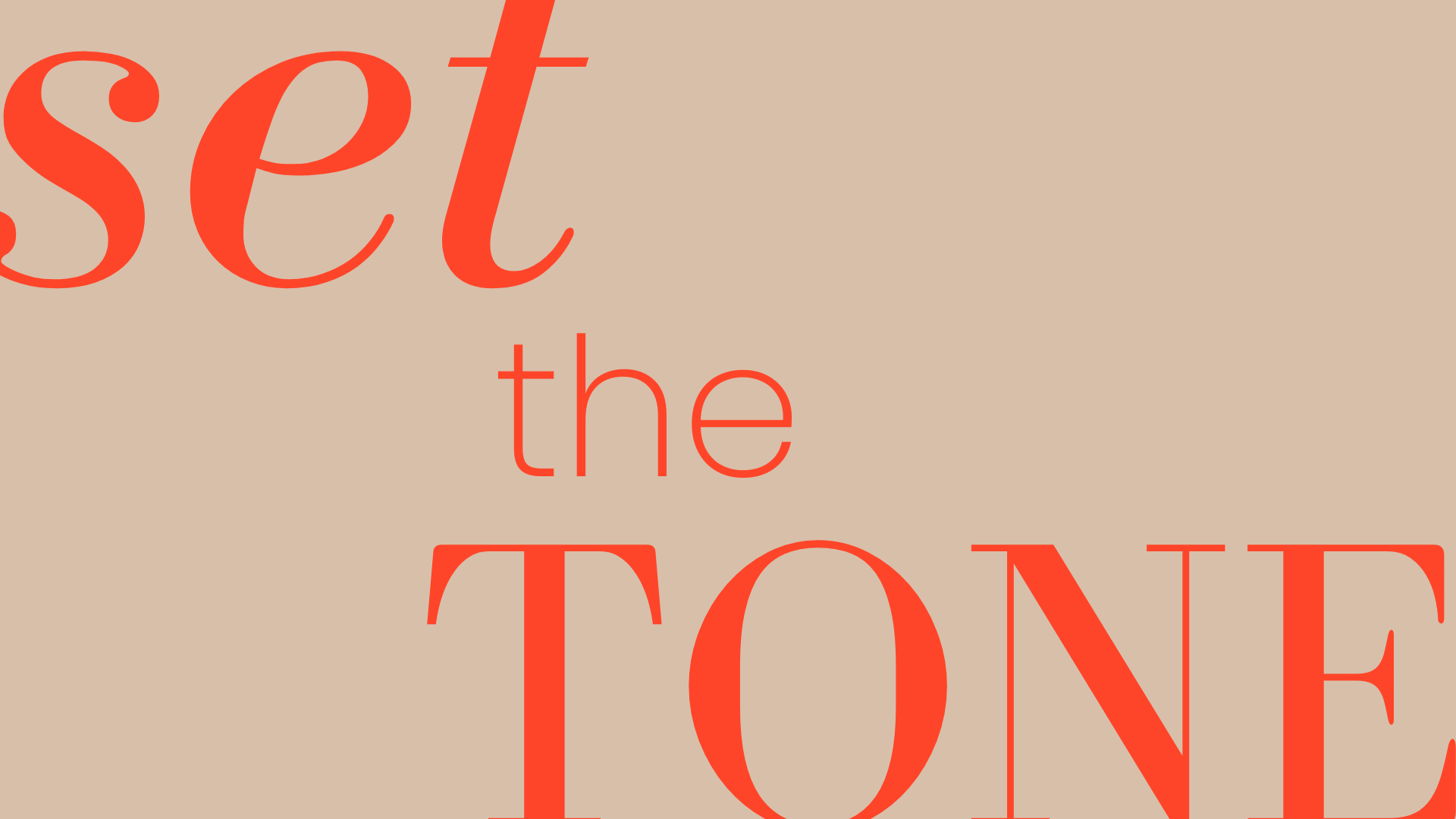Rebrand Your Verbal Personal Brand
Make 2025 the year to level up your personal brand's verbal identity. This isn’t about sounding smart. It’s about engaging your audience with your unique tone of voice.
Have you defined the verbal identity of your personal brand? The words you choose don’t just communicate their meaning; they communicate what you represent.
If you want to pinpoint your verbal personal brand and level up its tone of voice in 2025, try these tips:
1. Read regularly and widely
You are who you spend your time with. Seek inspiration from books. Becoming a regular reader will naturally elevate your vocabulary.
Research compared the knowledge of TV watchers to readers. As a reader, you know more and have better analytical skills, improving your judgement and problem-solving. Books, magazines and written text also use more unique words than television. This improves your vocabulary and communication skills.
Read books, blogs or articles. Read across different disciplines. Being interested in different things will make your personal brand interesting to others. One caveat to remember though is that the best relationships are built by being interested in others.
2. Listen and learn actively, not passively
The Learning Pyramid tells us that we only retain 10% of what we read, meaning reading is highly passive. Make the effort to make it an active activity.
In your reading or listening, pause when you stumble across words you’re unfamiliar with. Don’t just be content with acknowledging that you don’t know what a word means. Reignite the child-like curiosity that built your vocabulary to begin with.
As I read eBooks, whenever I find a word I don’t know, with a simple touch of a button - while remaining in the app - I look up the definition of the word.
When you’re listening to podcasts or watching videos, take a moment to learn any unfamiliar words.
3. Create a list of captivating words
Energy flows where your attention goes. When you start to care about words, you start to notice what most captivates your attention. When you’re listening to a friend or colleague, or listening to a podcast or video, notice the words and phrases that piqued your curiosity or seemed an engaging choice.
My late dad ended his voicemail with:
“Have a tremendous day.”
It stood out. My sister mentioned it in his eulogy. He chose the more special word, where most would have said “good” or “great”.
Let me be very clear though: having a unique verbal personal brand isn’t about sounding smart. Simplicity is the ultimate form of sophistication in communicating verbally. This applies whether you are speaking or writing. But, a sprinkle of a few unique choices can add personality to your verbal personal brand. It can engage and increase your credibility.
Research has shown that people who sound more articulate are often perceived as more intelligent, educated and competent. Professionally and personally, this can have obvious advantages for your personal brand. For example, studies have shown this can enhance your perceived leadership qualities, credibility and persuasiveness.
In The Unfair Advantage, Ash Ali and Hasan Kubba say:
“Your Status is your personal brand. It is how others see you. It is your social standing, your appearance, gender, age, how you dress, stand, and talk. It’s also your perceived credibility.”
4. Define your personal brand’s verbal identity
Define your personal brand’s desired tone of voice using up to five words. This is an exercise I ask my personal brand coaching clients to try. This should stem naturally from your personal brand’s personality. Then, commit those five traits to memory.
You can also take things further for your verbal personal brand by defining what is on-brand and what is off-brand for each element. For example, if you want to have an elegant tone of voice, excessive swearing would be an example of an off-brand tone of voice for your personal brand. With just a few simple dot points under each element, you’d be surprised at the effect this can have on your verbal personal brand. From time to time, I think of my five traits when I am writing my emails or my blogs. After leaving a meeting, I do a quick sense check to see if I represented the desired tone of voice for my personal brand.
5. Practise your personal brand’s desired verbal identity
You could practise your speaking in the one-off presentation your boss asks you to give. Or, you could have a weekly podcast and/or YouTube channel and practise your speaking skills every week. You could write a monthly report. Or, you could refine your writing in a weekly blog or LinkedIn articles that force you to regularly master your words.
In the Learning Pyramid, the highest-ranking retention rates come from teaching at 90%. Doing scores, 75% and discussion, 50%. Any of these activities will help your learning become a more active undertaking.
6. Measure your verbal brand
One of my favourite things about using Grammarly is the weekly email report you receive about your writing. This includes tracking the tone of voice of your personal brand - an easy way to see if your desired and actual tone of voice of your personal brand are aligned.
The report also assesses the uniqueness of your vocabulary against other Grammarly users.
7. Speak the other person’s language
In the book How to Talk to Anyone, Leil Lowndes discusses the importance of anatomically correct emphasisers. People experience the world through their senses. And for most, perceptions have preferences. One sense will usually dominate our perceptions. It’s not that it’s physically stronger, but it’s our most preferred way to experience the world around us. For example, does something ‘look good’ or ‘sound good’? Or, can you ‘feel it in the air’, ‘smell it in the air’ or ‘taste it in the air’?
Neurolinguistic Programming (NLP) recommends listening to others' preferred senses and then speaking through those senses.
All the best for levelling up your personal brand’s verbal identity in 2025!




